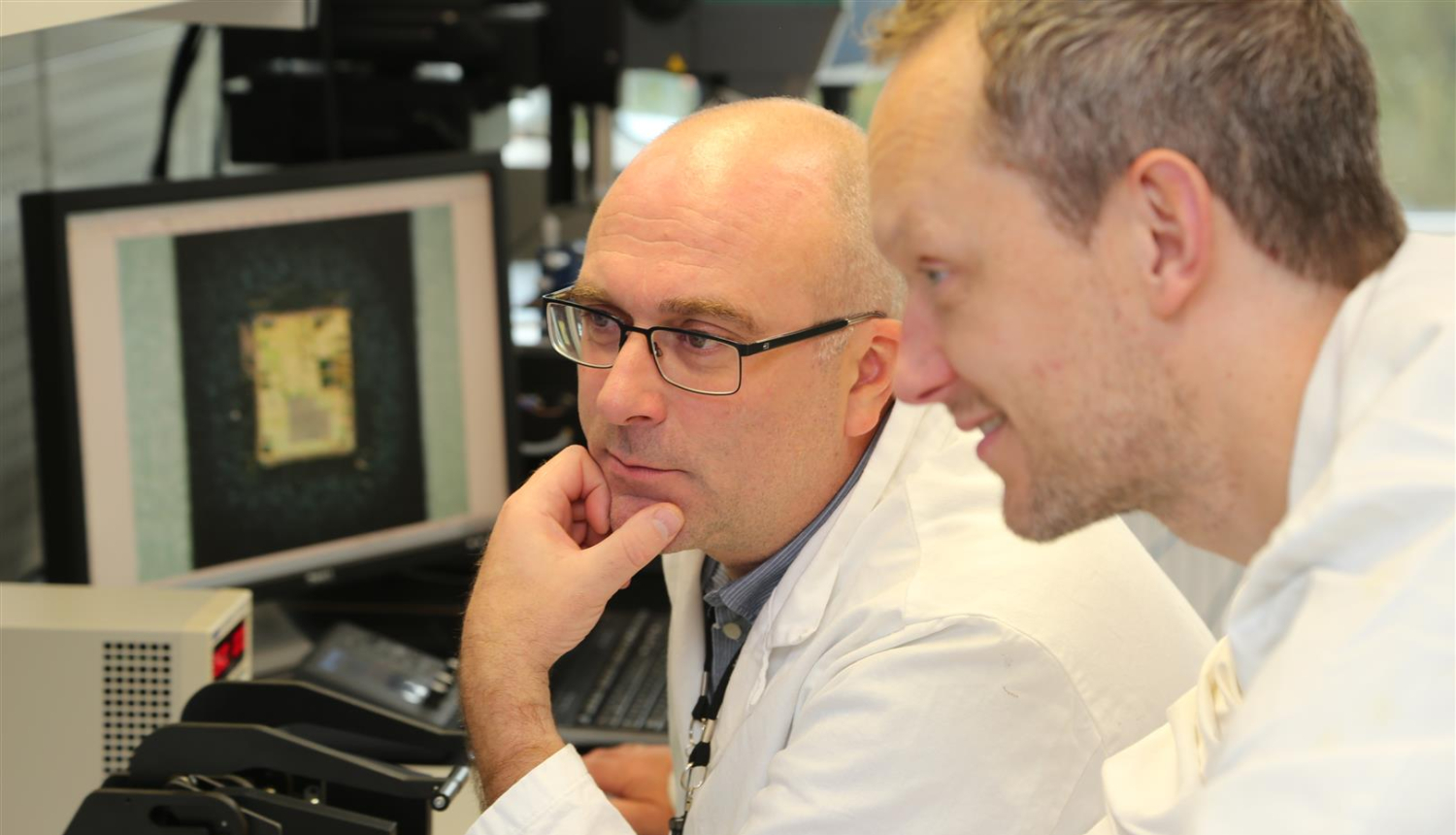June 17th this year, the Ministry of the Interior signed an agreement with the Ministry of Justice on a project that will serve as a springboard for the reform of the forensic examination institution in Latvia and which envisages the establishment of a single State Forensic Examination Centre under the Ministry of Justice, merging the State Forensic Examination Bureau and the State Police Forensic Department.
The Ministry of Justice in cooperation with the Norwegian National Criminal Investigation Service (NCIS), the State Forensic Science Bureau (SFSB), the State Police (SP) and the State Centre for Forensic Medical Examination (SCFME) is launching a European Economic Area (EEA) grant funded project “Strengthening of the capacity of forensic system and inspection of the site of the event” under the “International Police Cooperation and Combating Crime” programme.
Dimitrijs Trofimovs, State Secretary of the Ministry of the Interior, says: “The Ministry of the Interior, together with the Ministry of Justice, has been able to attract international funding to strengthen the capacity of the internal affairs and justice sectors and to modernize Latvia’s forensic science system, while also cooperating with other law enforcement agencies to achieve these goals. I am pleased that the experts of the SP will gain new knowledge and modern technical equipment as a result of the project. The cooperation will significantly improve the work of Latvian law enforcement agencies for the security of Latvia and the international community.”
State Secretary of the Ministry of Justice Mihails Papsujevičs says: “The establishment of a unified forensic science institution will be a good stepping stone for further steps to promote the rule of law in the country. Firstly, the examination of objects and traces removed in one case will eliminate the risk of losing traces in another examination, as a single team of experts will work on the examination, which will also reduce the overall duration of the examinations and have a positive impact on the case processing time. Secondly, the support of forensic experts at the site of the event will be improved, and thirdly, the potential for forensic policy development will be significantly increased.”
The project will significantly improve the technical capacity of Latvian forensic science institutions and the knowledge of forensic experts.
The project will also provide training for Latvian forensic experts in the use of three-dimensional (3D) scanners, one of the most effective methods of capturing a crime scene. The data obtained may be used both in the performance of an expertise and in the performance of various procedural activities (examination of evidence) and in the presentation of evidence in court. The resulting 3D scans allow all possible distances and objects at the event sites to be accurately measured.
The project will address current issues in forensic examinations: in cooperation with NCIS forensic experts, SFSB will create a common database in document forensics, which will expand the amount of information needed for document examination, as well as provide new opportunities to use existing analytical technical equipment in the field of chemical forensics, which will provide investigators with more information about the facts relevant to the case. The collaborative work of forensic experts from both countries will certainly provide new opportunities in forensic science.
In order to improve the qualification and technical support of the staff of the SP and other law enforcement agencies in identifying victims of disasters and mass casualties, new technical equipment (10 specially equipped vehicles, technical equipment, equipment for working at the event sites, such as specialised clothing for working in high-risk conditions, chemical and radiological contamination testing equipment for use at the event sites) will be purchased within the project. The qualifications of employees will be improved by organizing international training in the field of Disaster Victim Identification, involving the teaching staff of Interpol.
The deployment of new modern technologies in practice will allow the development of new possibilities in expertise, updating research methods. It is therefore expected that laboratory equipment for toxicological examinations and investigations will be purchased under the project (for qualitative determination of alcohol and psychoactive substances in biological material, a set of equipment for machine-readable identification and traceability of forensic subjects and objects and equipment for autopsy rooms, including modern autopsy tables, lamps, refrigeration chambers, etc., as well as a portable X-ray machine). The working capabilities of forensic experts at the event scene will be significantly improved by facilitating their mobility and providing them with the necessary equipment and materials to match modern capabilities and to enable them to work in non-standard conditions.
The Ministry of Justice has a national leadership role in policy development in the field of forensic science and, in accordance with the plan approved by the Government, the Ministry of Justice has been given a leading role in the process of establishing a single forensic science institution. In view of the above, the coordination and implementation of the measures in the expert examination institutions in the project will be carried out by the Ministry of Justice. The total project funding is estimated at EUR 2 680 000, of which the EEA grant funding of 85% is EUR 2 278 000 and the national co-financing of 15% is EUR 402 000, complemented by a grant of EUR 171 000 from the Norwegian Grant Programme’s Bilateral Cooperation Fund. The project will be implemented until 30 April 2024.



